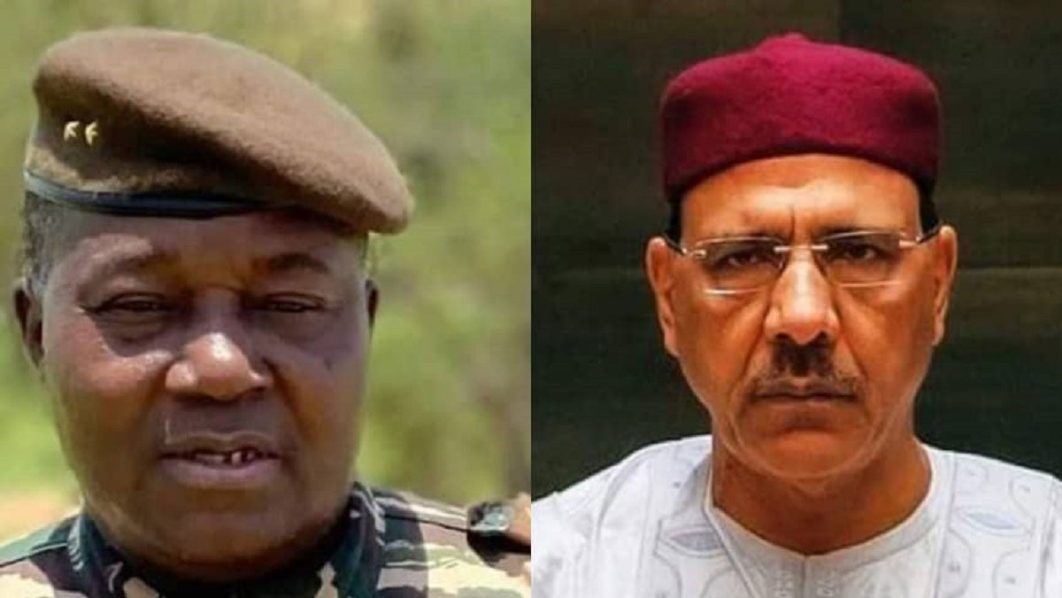
In the midst of raging reactions to last week’s coup in Niger Republic, the resilience of the Economic Community of West African States (ECOWAS) is to be applauded in an era of new regionalism.
Nations exist in a world of interdependence warranting the expression that no nation is an island. It is this reality that makes cooperation and interdependence among nations essential.
At the ECOWAS’ 63rd Ordinary Session of the Authority of Heads of State and Government of the Economic Community in Bissau, capital of the Republic of Guinea-Bissau, President Bola Tinubu emerged as chairman of ECOWAS. He received leadership from Guinea-Bissauan President Umaro Sissoco Embaló. The chairmanship position is held by one of the heads of state or government of the member states chosen on a rotational basis for a-year tenure. The ascension to the chairmanship position by the Nigerian President, himself recently elected in Nigeria’s 2023 general elections, became an ex-cathedral occasion for a democratic sermon.
An enthusiastic President Tinubu expressed the desire to provide the required leadership of the sub-regional while noting that member states embrace democratic government. “We must stand firm on democracy. There is no governance, freedom, and rule of law without democracy. We will not accept coup after coup in West Africa again. Democracy is very difficult to manage but it is the best form of government…There is no one here among us who did not campaign to be a leader. We didn’t give our soldiers resources; we didn’t invest in them, in their boots, in their training to violate the freedom of the people.
To turn their guns against civil authorities is a violation of the principles upon which they were hired, which is to defend the sovereignty of their nations. We must not sit in ECOWAS as toothless bulldogs.”
The issue of the security architecture also gained the attention of the new ECOWAS chairman. In this respect, he noted that the threat to peace in the sub-region has reached an alarming level that needs urgent actions in addressing the challenges. “Indeed, without a peaceful environment, progress and development in the region will continue to remain elusive. In this regard, we must remain committed to the utilisation of all regional frameworks at our disposal to address the menace of insecurity,” Tinubu stated.
One such tool is the Regional Plan of Action on Fight against Terrorism 2020-2024 as well as the operationalisation of the ECOWAS Standby Force on Fight against Terrorism. ECOWAS security architecture, Tinubu observed, “Covers a wide range of areas that involve kinetic and non-kinetic operations, including preventive diplomacy.”
However, it should be noted that the sub-region is bedevilled with a range of problems. These include terrorism, bureaucratic structures on the free movement of people, goods, and services, military coups and tenure elongation, lack of infrastructural connectivity, whimsical closure of borders, and lack of abidance by ECOWAS conventions and protocols. Others include frustrations of initiatives like common currency such as ECO and divide and rule by former colonial powers.
For example, virtually all countries in the sub-region are in the throes of fighting terrorism. Tenure elongation has raised tension in the sub-region. Also, the spectre of a coup hangs over the sub-region. There has been a military seizure of power in Mali, the Republic of Guinea, Burkina Faso, and lately, Niger. All these are a violation of the values of the democratic rule of law adopted by member states through the supplementary protocol on democracy and good governance.
To be sure, these contradictions highlighted are a subversion of the aims and objectives of the organization, which was founded in 1975 to promote cooperation and integration, and facilitate the establishment of an economic union in West Africa thereby raising the well-being of the people, and to maintain and enhance economic stability, foster relations among member States and contribute to the progress and development of the sub-region.
Although mission creep has since ensued in terms of military cooperation, ECOWAS needs to refocus on its foundational goals. It is well that the new chairman has stated his intention to motivate member states towards economic development, political stability, and cooperation as well as close collaboration with member states, regional institutions, and international partners to implement initiatives aimed at promoting economic growth, regional trade integration and social development. No serious government should close its borders whimsically. ECO, the sub-regional currency, an initiative of the African Development Bank (AFDB) should be prioritised.
Truly, the goal of a common currency is very important. There is no sense in West Africans or Africans for that matter, trading among themselves in the United States Dollar (USD). It is simply preposterous. So the ECO, first planned to commence in 2003, but postponed on several occasions should be brought back to the table. Inter-connectivity through road and transportation infrastructure of the peoples of West Africa will be invaluable. It will put a stop to a situation where West Africans travelling to any West African state would be subjected to pay an overseas rate for flight. This is unacceptable.
For emphasis, terrorism is a more serious business, and it requires collaboration and tact especially when foreign powers are involved. Above all, free and fair elections should be encouraged in the sub-region for democratic consolidation and citizens’ trust in the process. The story of elections in the sub-region has been largely one of malfeasance. As the new chairman states, democracy should be taken seriously, not as a mere slogan. The organisation will do well to demonstrate steadfastness in its handling of the Niger coup and restoration of democratic norms to the country.






